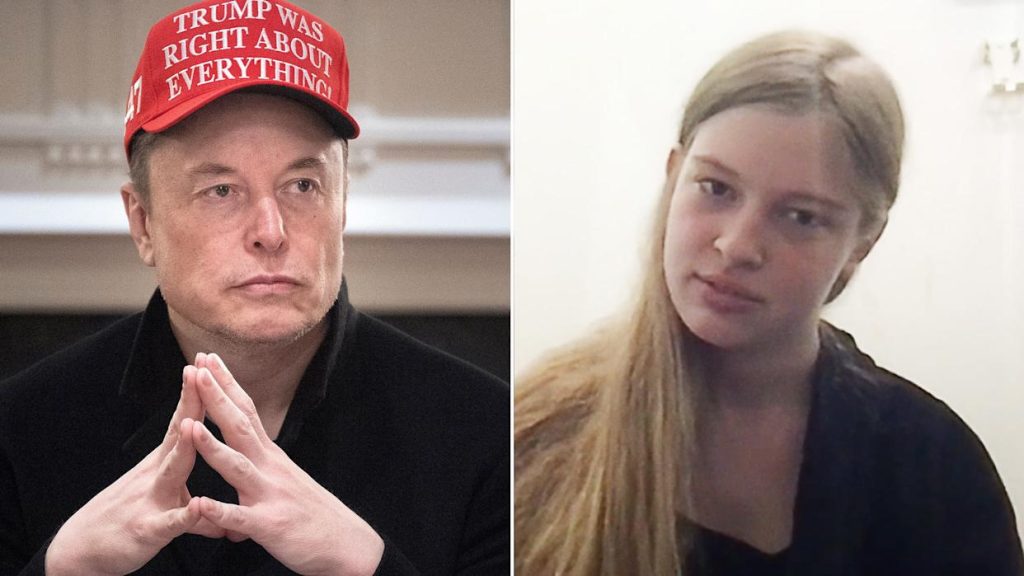Elon Musk’s estranged daughter, Vivian Wilson, has publicly criticized her father’s ambitious plans to colonize Mars, dismissing them as unrealistic. During a recent live stream with commentator Hasan Piker, the 20-year-old expressed skepticism about the feasibility of such endeavors.
Vivian Wilson Challenges Musk’s Mars Vision
In the live stream, Wilson addressed Musk’s assertions about establishing a human presence on Mars by 2050, including deploying a humanoid robot named Optimus and potentially landing humans on the Red Planet as early as 2029. She responded bluntly, stating, “It’s not happening, people.” Wilson questioned the practicality of terraforming Mars, suggesting that the concept is more of a marketing strategy than a viable plan. She remarked, “It’s a marketing scheme that everyone somehow fell for despite being debunked by a f****** Google search.”
Strained Father-Daughter Relationship
Wilson’s relationship with her father has been notably strained. In 2022, she legally changed her name, distancing herself from Musk and stating she no longer wished to be related to him “in any way, shape or form.” This move followed her transition and a period of financial independence from her father since 2020. Musk has publicly expressed his distress over their estrangement, attributing it to ideological differences. He has suggested that Wilson was influenced by “full-on communism” at the elite university she attended, leading her to believe that “anyone rich is evil.”

Musk’s Perspective on the Estrangement
Musk has openly discussed the pain caused by his daughter’s decision to cut ties. According to biographer Walter Isaacson, the rift with Wilson has been one of the most painful experiences in Musk’s life since the death of his firstborn child, Nevada. Musk has made several attempts to reconcile, but Wilson has remained distant. He has also voiced concerns about the influence of progressive ideologies, referring to them as a “woke mind virus” that he believes is affecting society.
Wilson’s Response to Musk’s Claims
Wilson has refuted Musk’s assertions about her beliefs and experiences. She has denied being “brainwashed” or holding “neomarxist” or “communist” views. Additionally, she has accused Musk of misrepresenting her and misgendering her in public statements. In a series of social media posts, Wilson criticized her father’s portrayal of her, calling his efforts to rebuild his image as a caring father “absolutely pathetic.”
Broader Implications
The public nature of the discord between Musk and his daughter highlights the complexities that can arise within families, especially those in the public eye. It also sheds light on the challenges faced by transgender individuals in familial relationships and the broader societal discourse. Wilson’s candid remarks serve as a reminder of the personal dimensions that underlie public personas and ambitious ventures. As Musk continues to pursue his vision for space exploration and colonization, the personal dynamics within his family add a layer of complexity to his public narrative. Wilson’s criticisms invite a more nuanced consideration of the interplay between personal relationships and public ambitions.
The Feasibility of Musk’s Mars Colonization Plans
Despite Vivian Wilson’s skepticism, Elon Musk has remained steadfast in his vision of making humanity a multiplanetary species. His company, SpaceX, has been actively developing the Starship rocket, which is designed to transport humans and cargo to Mars. Musk has repeatedly claimed that the first human landing could take place as early as 2029, with a self-sustaining colony potentially emerging by 2050.
However, critics argue that there are significant technological, financial, and ethical challenges to such an endeavor. The journey to Mars itself poses enormous risks, including radiation exposure, the psychological toll of long-duration space travel, and the need for life support systems that can function independently for months or even years. Additionally, Mars’ harsh climate—extreme temperatures, dust storms, and a lack of breathable atmosphere—raises questions about how feasible large-scale human settlement would be.
A Marketing Strategy or a Genuine Scientific Pursuit?
Wilson’s accusation that Mars colonization is merely a “marketing scheme” resonates with some experts who believe that Musk’s ambitious claims may be more about inspiring investors than reflecting scientific reality. SpaceX relies on significant funding, both from private investments and government contracts, to develop its technology. Musk’s larger-than-life statements about Mars have contributed to SpaceX’s allure, attracting billions in funding. Still, others argue that Musk’s vision aligns with historical precedents of exploration. Much like past pioneers who sought to explore new frontiers despite the dangers, proponents of Mars colonization believe that the technological hurdles will eventually be overcome, leading to a new era of interplanetary civilization.

Family Struggles in the Public Eye
Wilson’s disavowal of her father adds another layer to Musk’s public image. As one of the world’s most influential and controversial figures, Musk has often drawn both admiration and criticism. His personal life—including high-profile relationships, business controversies, and outspoken opinions—has been widely scrutinized.
The estrangement from his daughter presents a deeply personal issue that contrasts with his grand technological ambitions. While Musk’s supporters may see his attempts at reconciliation as sincere, Wilson’s perspective suggests that the damage to their relationship is beyond repair.
Conclusion
Regardless of Wilson’s criticisms, Musk’s commitment to space exploration remains strong. SpaceX continues to break new ground, launching reusable rockets, developing the Starship vehicle, and working closely with NASA on missions such as the Artemis program, which aims to return humans to the Moon.
Whether Mars colonization will become a reality or remain a distant dream is yet to be seen. However, one thing is certain: the debate surrounding Musk’s vision—and the personal conflicts intertwined with it—will continue to shape public perception of his legacy.
As Musk pushes forward with his spacefaring dreams, Wilson’s remarks serve as a reminder that even the most ambitious visions can be met with skepticism, especially from those closest to the visionary himself.

















